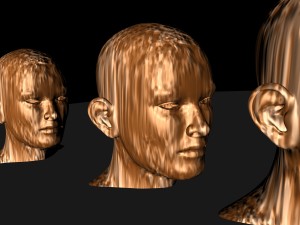 Humans have learned a lot about our growth as a species through the study of apes and ape culture, and now the latest scientific evidence suggests that language originated with our hands.
Humans have learned a lot about our growth as a species through the study of apes and ape culture, and now the latest scientific evidence suggests that language originated with our hands.
Scientist are now focusing on how we convey information and io9 evolution writes that how we make the sounds of language – which of course primarily happens in our voice boxes – is less important than how we convey meanings.
Researchers at the Max Planck Institute purport that the gesture theory of language evolution suggests that the complex spoken languages we use today originate from relatively simple ideas our ancestors conveyed with their hands.
Their research found that all four of these species (of apes) develop a complex system of hand-waving and gestures in the first twenty months of life. These range from simply poking other apes to get their attention to slightly more abstract gestures like shaking their heads or extending their arms outward.
The fact that their young can and do pick these up shows that it is a way for them to convey meaningful information.
Researcher Michael Collins notes, “In monkeys, intentional arm movements are dedicated mainly to grasping. Communicative gestures probably emerged in apes, and began to assume grammatical forms in hominins.”
Another important fact to consider is that human babies learn the same basic gestures across cultures regardless of where they are raised. Apes, however, did not show common meanings for gestures across or within species. The only commonality was that they used hand gestures in sophisticated ways from a young age.
 Nowadays, robots can do almost anything- the one thing they are lacking is the ability to read facial expressions. Well, that just might be changing.
Nowadays, robots can do almost anything- the one thing they are lacking is the ability to read facial expressions. Well, that just might be changing. True and Interesting Fact: The average human has about 6 thousand thoughts a day, many of which are repeating thoughts.
True and Interesting Fact: The average human has about 6 thousand thoughts a day, many of which are repeating thoughts.